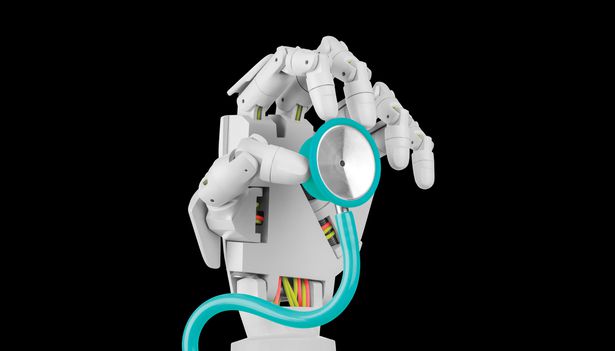Will IBM’s Watson replace doctors, then be hijacked by industry bias?
 February 21, 2013 By Steven E. Greer, MD
February 21, 2013 By Steven E. Greer, MD
The Atlantic article on IBM’s Watson is triggering rebuttals on medical blogs asserting that human doctors cannot be replaced. I hate to break it to internists, but Watson and other computer algorithms will indeed make most functions of the internist obsolete. A nurse with a Watson-type resource can deliver the same care (if not better) as what your internist provides now.
The real question is whether the industry biased “guidelines” for “gold standard” care will become integrated into Watson’s list of recommended therapies and medical diagnostic tests to be ordered. If they are, then Watson will be a menace to society.
Fortunately, we still have wise doctors who know how to ignore the harmful garbage in the medical society guidelines and industry-paid journals, or know how to be prudently cautious “late adopters” of new drugs. The insight that the best doctors have, which cannot be duplicated by computers, is based on the ability of one human brain to decipher the human nature of other brains. They realize, for example, that clinical trials are woefully underpowered to detect real-life adverse events, and are too often based on overseas clinical data of dubious reliability. These wise doctors know that money trumps science and influences journal editors and medical societies, which literally would not exist without drug and device industry funding.
The impressive “medical society guidelines” that seem so official and irrefutable, drafted by doctors who or are often highly paid by the drug and device industries, have caused over history tremendous harm to the population. To list just a few examples:
- Millions of people currently take muscle fatiguing, dementia causing, cholesterol-lowering statin drugs, but they actually do not need them (because they have not had a heart attack and there is no data to support “primary prevention” use)
- Millions of people are taking daily aspirin and, as a result, thousands of them are suffering strokes and GI bleeds caused by the thin blood. Once again, the data do not support that the patients have received a beneficial reduced risk of a heart attack from the aspirin (in patients who have not had a hear attack, or “primary prevention”)
- Millions of people are on antidepressants despite the fact that the drugs cause harm, in the form of suicide, and have very questionable efficacy at reducing suicide.
- Millions of patients receive cardiology related procedures, such as coronary stents, and have suffered unnecessary radiation and vascular complications, while not benefiting from the procedures.
- Millions of patients have received knee arthroscopy, despite the procedures being of no use.
- Millions of people receive cancer-causing CT scans who do not need them.
- Millions of people were placed on the low-fat diet, despite the fact that it was ineffective and harmful.
- ….and so on, and so on
It is quite likely that Watson-type medical algorithm programs will be hijacked by the healthcare industry junk science and guidelines, and therefore be “junk in, junk out”. The best way to prevent this is to eliminate fee-for-service financial incentives.
No Comments
No comments yet.
Notice: comments_rss_link is deprecated since version 2.5! Use post_comments_feed_link() instead. in /data/30/1/121/80/1121895/user/1185656/htdocs/wordpress/wp-includes/functions.php on line 3406
RSS feed for comments on this post.
TrackBack URI


